|
|
|
Editor's note
|
|
What’s the economic value of the outdoors? The most direct answer is to add up spending on outdoor-related activities, such as camping permits, park admission fees and fishing gear. But when economists want to know how much people value actual beaches and forests, they look at our choices: where we go, and what we’ll do to get there. Ohio State University economist Timothy Haab explains how so-called willingness-to-pay studies can build support
for funding conservation.
John Schnatter used to be the face of Papa John’s, the pizza china he founded. Now, after being pushed out following a report he made a racial slur, he’s suing the company to access documents related to his ouster. But Papa John’s isn’t standing still. Its board has adopted a “poison pill” strategy intended to prevent its former chairman from taking back control of the company. Corporate strategy scholar Yannick Thams explains just what a poison
pill is and why Papa John’s thinks it’ll keep out its largest shareholder.
And if you missed a chance to celebrate National Tequila Day last Tuesday, don’t fret – you can make up for it this weekend. But before you begin your bender, read the latest from Colorado State food historian Jeffrey Miller, who debunks some myths about a spirit that has seen its global sales double over the past decade.
|
Jennifer Weeks
Environment + Energy Editor
|

|
|
Top stories
|
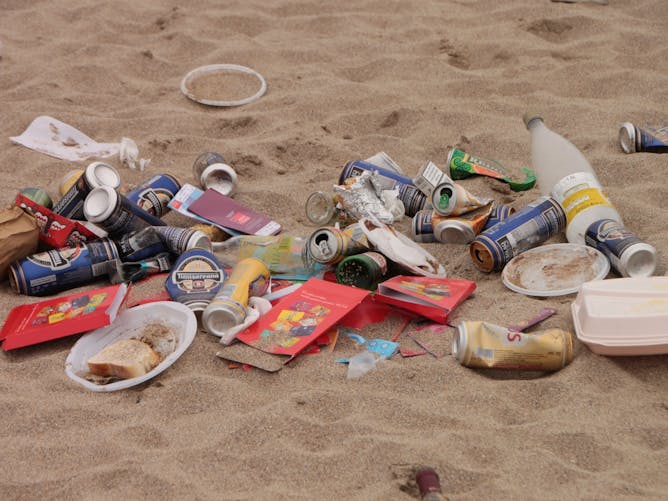
How much would you pay to make this disappear?
Emilian Robert Vicol
Timothy Haab, The Ohio State University
What would you pay to keep trash off your favorite beach, or pollution away from a national park? Economists can tease these values out of our travel choices and use the numbers to help make policy.
|

Papa John himself resigned from the company after a report said he used a racial slur.
Reuters/Danny Moloshok
Yannick Thams, Suffolk University
Papa John's is hoping to use the corporate strategy to prevent founder John Schnatter from taking back control over the pizza chain.
|
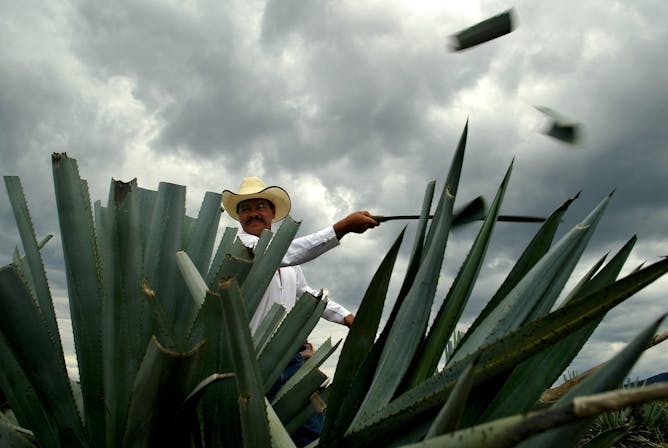
An agave plant cutter, or ‘jimador,’ cuts the tips off from agave branches at a Jose Cuervo blue agave field.
AP Photo/Guillermo Arias
Jeffrey Miller, Colorado State University
Is a shot of tequila actually good for you? And what's the deal with the worm? To celebrate National Tequila Day, a food historian explores some little-known aspects of the popular Mexican spirit.
|
Arts + Culture
|

Laura Frizzell, The Ohio State University; Sadé L. Lindsay, The Ohio State University; Scott Duxbury, The Ohio State University
White shooters are nearly 95 percent more likely to have their crimes attributed to mental illness than black shooters.
| |

Thomas Alan Schwartz, Vanderbilt University
Fifty years ago, an insurance agent named Paul Simpson was convinced of rampant bias on the evening news. So he embarked on a project to record each broadcast and store them at Vanderbilt University.
|
|
|
Science + Technology
|
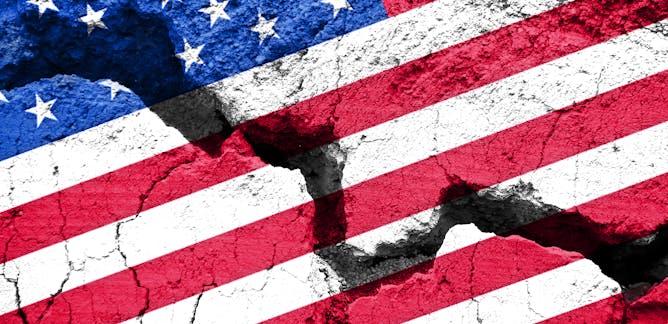
Timothy Summers, University of Maryland
Cybersecurity experts in the US knew about Russian intelligence agencies' activities, but may not have had any idea how comprehensive and integrated they were – until now.
| |

Julia Meyers-Manor, Ripon College; Emily Sanford, Johns Hopkins University
Many dog owners have tales of their faithful companion licking away their tears. Researchers investigated whether, beyond being comforting, canines would actually take action to help an upset owner.
|
|
|
Health + Medicine
|

Gabriel Neal, Texas A&M University
Ouch! Who hasn't felt the effects of a paper cut and then cursed the gods or themselves for the injury? But have you ever wondered why they hurt so much? A professor of family medicine explains why.
| |

Marie Menke, University of Pittsburgh
For women and men not ready to have children, there are new ways to preserve fertility. And experimental techniques offer hope for sick children whose treatments jeopardize future childbearing.
|
|
|
Economy + Business
|
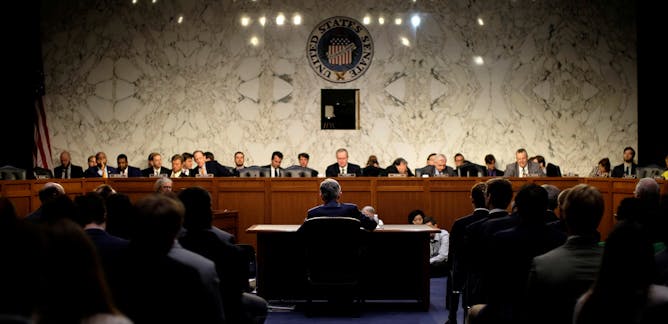
Sheila Tschinkel, Emory University
President Trump has been attacking the Fed's current policy of slowly raising interest rates. A former central bank official explains why that's so troubling.
| |

Stacey Wood, Scripps College
Scam emails and phone calls are on the rise as it becomes ever easier to orchestrate fraud from anywhere in the world. New research sheds light on what makes some of us more susceptible than others.
|
|
|
Politics + Society
|
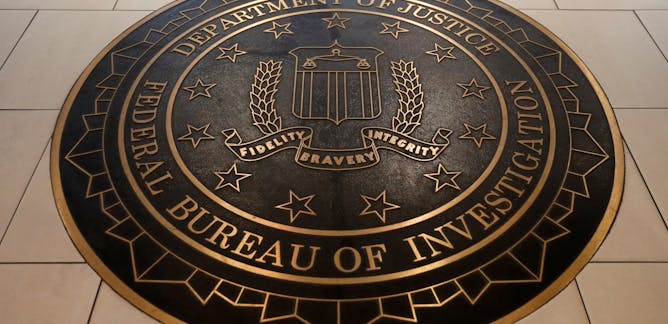
Douglas M. Charles, Pennsylvania State University
An American pilot. A German aide on Capitol Hill. In the first and second world wars, the FBI effectively uprooted foreign influence campaigns. Today, the agency faces an uphill battle.
| |
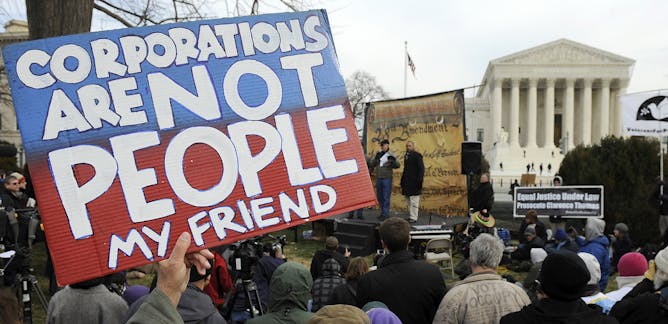
Michael T. Morley, Florida State University
Retiring Supreme Court Justice Anthony Kennedy is the author of one of the most controversial and scorned rulings in modern Court history: Citizens United. Is that condemnation undeserved?
|
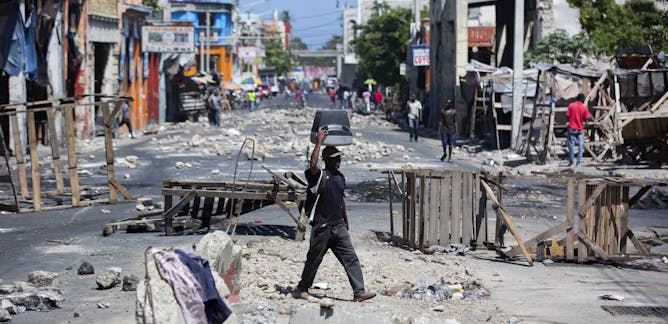
Vincent Joos, Florida State University
After weeks of protest in Haiti, sparked by a sudden rise in fuel prices, at least seven are dead and the prime minister is out. Foreign creditors pushed for the price hike as an austerity measure.
| |
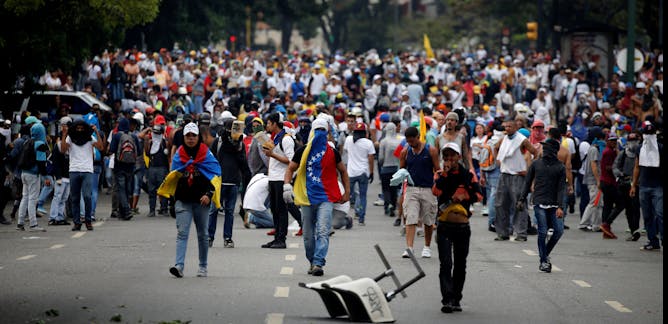
Andrea Oelsner, Universidad de San Andrés (Argentina); Federico Merke, Universidad de San Andrés (Argentina)
How long can a rogue regime survive international sanctions, bankruptcy, humanitarian crisis and popular unrest? When it comes to Venezuela, President Maduro may cling to power for some time.
|
|
|
Education
|
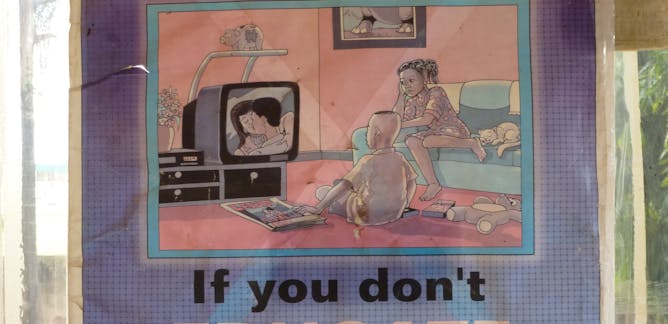
Rachel Sullivan Robinson, American University School of International Service
The story of how Nigeria and Mississippi implemented comprehensive sexual education programs despite local opposition offers important lessons about how to boost adolescent sexual health.
| |

Ana Mari Cauce, University of Washington; Clayton Rose, Bowdoin College; Connie Ledoux Book, Elon University
As the one-year anniversary of the tragedy in Charlottesville nears, we asked the presidents of Bowdoin, Elon and the University of Washington whether free speech should be treated diffferently on campus.
|
|
|
Ethics + Religion
|
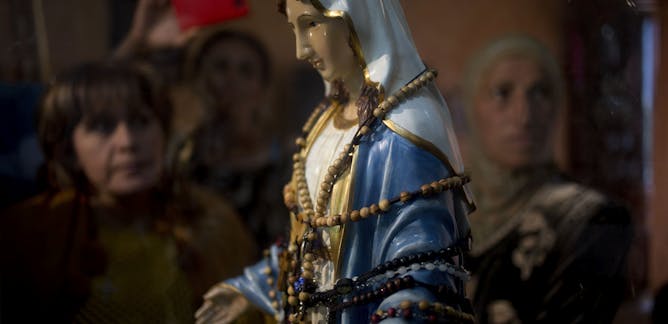
Mathew Schmalz, College of the Holy Cross
Throughout Catholic history, miracles have been attributed to Virgin Mary's power. She is understood to cry not only over the sins of the world, but over the pain she experienced in her earthly life.
| |

Michael Blake, University of Washington
Conflicts about policing the border have erupted in much of the world. How people respond depends on the many distinct visions of what borders are meant to be protecting.
|
|
|
Environment + Energy
|

Frank J. Cilluffo, George Washington University; Sharon L. Cardash, George Washington University
The difference between probing and mapping and actually attacking depends on the intent of the people doing it, which is hard to figure out and may change. The dangers, however, remain worrying.
| |
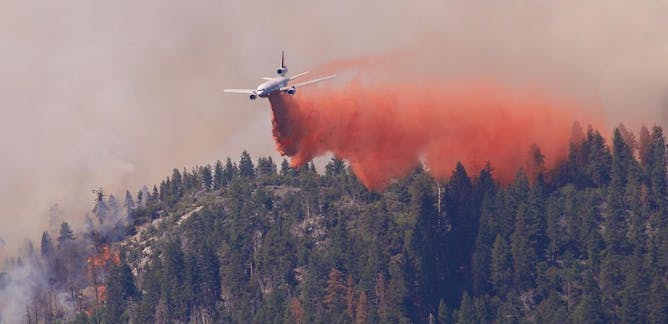
Cassandra Moseley, University of Oregon
A perfect storm of climate, forestry, development and fire management trends are driving up the costs of fighting wildfires.
|
|
|
| |
| |
| |
| |
| |
| |
|
|
|
|
|
|
|